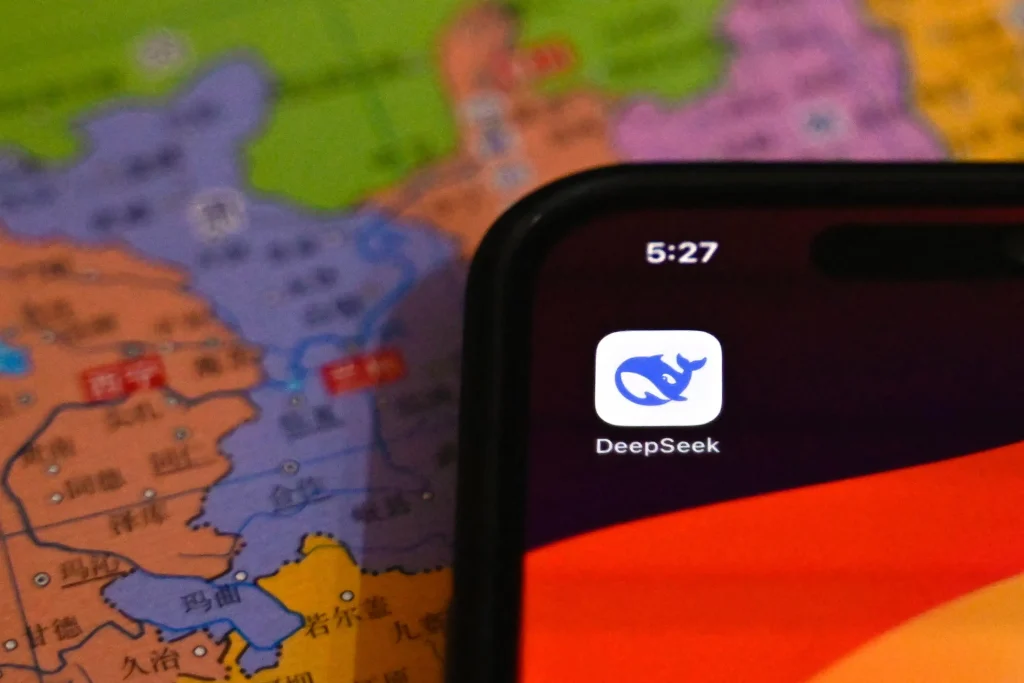WHILE the world has been caught up in a whirlwind of tariff news out of Washington, it has been easy to miss a separate barrage of artificial intelligence announcements from China.
Alibaba Group released a new open-source model for generating videos, so-called Little Dragon Zhipu AI filed early paperwork for an initial public offering as early as this year, and DeepSeek has been deployed everywhere from hospitals to local governments. The list goes on.
It’s impossible to overstate the domestic exuberance spurred by DeepSeek, which rattled the world earlier this year and proved that China can compete toe-to-toe with Silicon Valley. The Hangzhou-based startup breathed new vitality into the country’s AI sector. Although President Donald Trump’s trade war has brought turmoil to global markets, the hits won’t knock China’s AI development off-course.
The government has set up a 60 billion yuan (S$11 billion) AI investment fund, Bloomberg Intelligence noted, which can prop up the sector despite market volatility. The West shouldn’t underestimate what can happen when Beijing throws its entire might behind becoming a world leader in AI.

Start and end each day with the latest news stories and analyses delivered straight to your inbox.
But it’s not just policy support. Another source of strength is the embrace of the technology among the nation’s 1.4 billion people. The Chinese are the most excited in the world about the potential of AI. Some 83 per cent of adults said products and services using AI have more benefits than drawbacks, the highest share globally, compared to 39 per cent of Americans, according to an Ipsos survey.
China also had the highest percentage of respondents who said that AI has profoundly changed their daily lives in the past three to five years, and expect it will do the same in the coming same period. Three times as many Chinese versus American adults think that AI will make the economy better.
This exuberance plays out far beyond the corridors of tech companies. For example, Chinese farmers in Hubei province, many with little formal education, are turning to AI to navigate this year’s heavy rains. While the US has been laser-focused on advanced AI, China has been speeding ahead with widespread deployment of AI tools. This mass adoption gives it an edge.
A prolonged trade war will no doubt inflict pain on the country’s export-driven economy and hurt its tech industry; many of those fears are already reflected in the market volatility. But it would be a mistake to conflate macroeconomic pains with a slowdown in Beijing’s broader tech ambitions.
As prominent China researcher Gerard DiPippo of RAND has written, even if economic growth “remains comparatively weak and many Chinese firms continue to struggle, China’s central and local governments will keep supporting high-tech industries and emerging stars like DeepSeek”.
Just days after Trump kicked off the current trade war, Stanford University released a report stating that China leads in AI publications and patents. And while the US is still ahead in producing top models, “China is closing the performance gap”.
One of the biggest question marks remains access to cutting-edge chips. US restrictions have been a major hurdle in obtaining the computing power needed to drive China’s ambitions. Washington’s crackdown on Nvidia Corp’s H20 chips that are customised to get around export controls casts further uncertainty.
But Bloomberg Intelligence argues that the move could help the sector, not hinder it, in the long run. It would cut the “oversupply of models”, the analysts wrote, and tech giants including Alibaba, Tencent Holdings and Huawei Technologies already have a buffer from the near-term impact due to stockpiled chip inventories.
On the other side of the Pacific, fears that the tariff turbulence could cost Silicon Valley’s AI dominance are piling up. But while policymakers and business leaders are distracted by the fallout from the multi-front trade war, they have no excuse to be caught off-guard again by another DeepSeek-style breakthrough from China. BLOOMBERG

